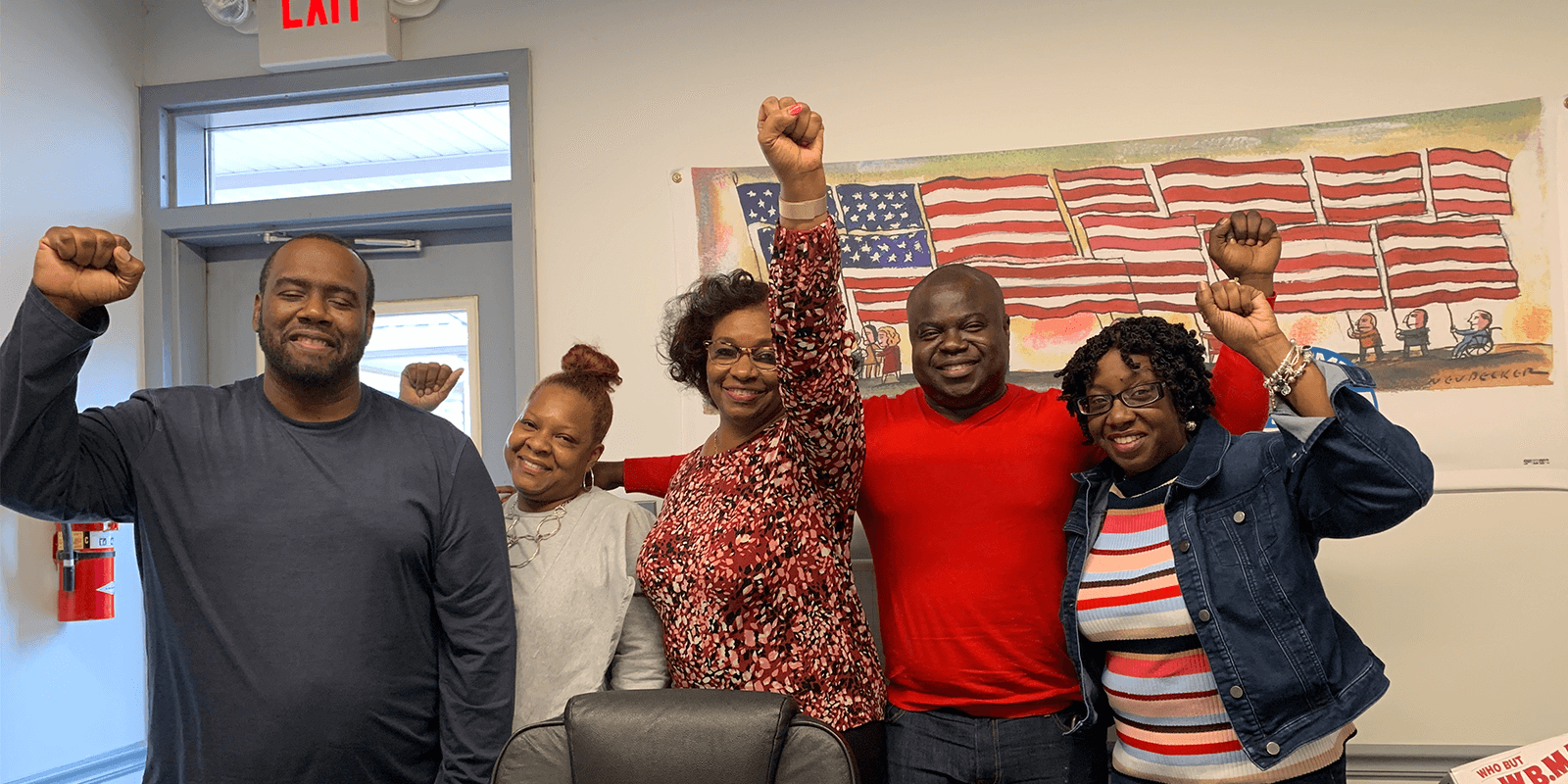TRENTON, N.J. – Members and leaders from AFSCME New Jersey are working after hours to elevate the behavioral health industry by visiting the homes of those who know it best – members who provide valuable behavioral health services across the Garden State.
The efforts to connect these workers are part of AFSCME’s greater United We Heal campaign, which aims to build a strong and equitable behavioral health community that ensures workers have their voices protected when speaking up on behalf of residents of behavioral health facilities.
“There’s a need to organize the behavioral health community to enhance the lives of our workers and those we serve,” said Awol Alhassan, president of AFSCME Local 2218.
Several themes emerged from the dozens of conversations held during home visits over the last weekend in February. Members talked about how the current system forces residents to navigate a complex process to access services and how social stigmas prevent residents from seeking help in the first place.
At the same time, behavioral health professionals face increased caseloads and high turnover, dangerous working conditions, and a growing need to have more say against changes that are hurting both residents and workers.
While the challenges facing behavioral health workers in New Jersey may appear daunting, they have already won important victories thanks to their renewed organizing efforts. Just recently, state workers won a pay raise, back pay for clothing maintenance allowances, and a bonus in their most recent contract. And they are working closely with their AFSCME sisters and brothers to protect their own health care benefits from being changed.
“Working under (a living) wage is a thing of the past,” Coral Dayon, president of AFSCME Local 2208, said after taking part in the weekend blitz. She agrees that by uniting more behavioral health workers through AFSCME, standards across the industry will improve.
“The state of New Jersey just passed the $15 minimum wage, so it’s time for [workers] to be able to sustain their own lives with fair wages and better benefits,” she said. “It’s about being able to have a better life in an expensive state.”
